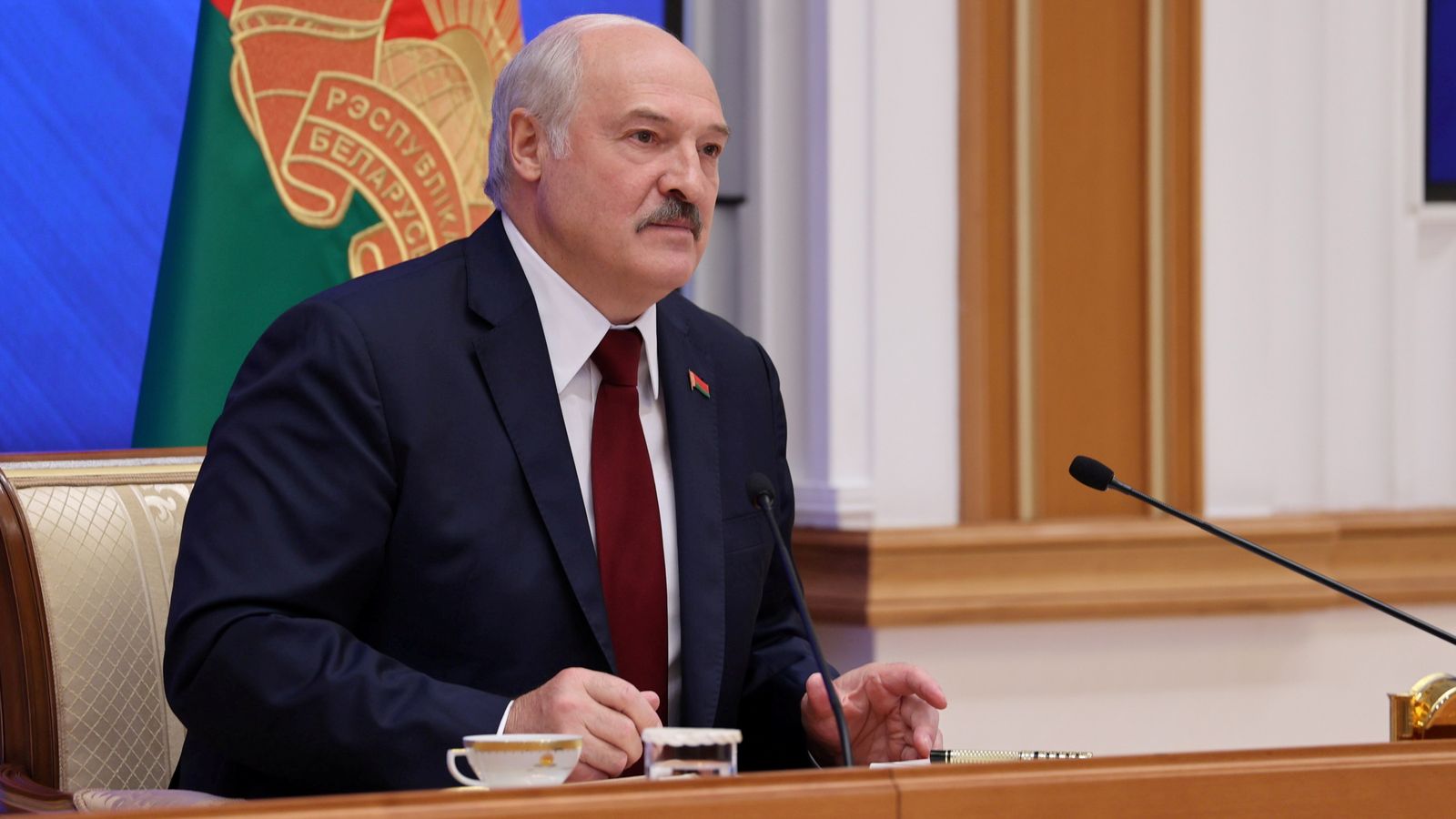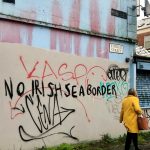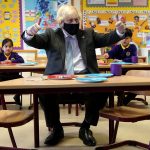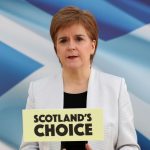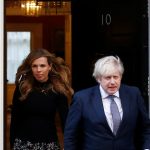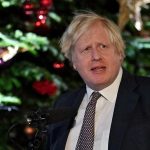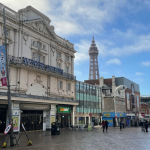Britain has imposed sanctions on Belarus to put pressure on President Alexander Lukashenko over what it calls his regime’s attempts to “crush democracy and violate human rights”.
The economic sanctions targeting the country’s state-owned banks also come alongside measures to prevent Belarusian air carriers from flying over or landing in the UK.
Mr Lukashenko dismissed the fresh sanctions by Britain, saying London could “choke on them”.
Please use Chrome browser for a more accessible video player
However, he also invited Western nations to negotiate instead of escalating the sanctions war.
Foreign Secretary Dominic Raab said: “These sanctions demonstrate that the UK will not accept Lukashenko’s actions since the fraudulent election.
“The Lukashenko regime continues to crush democracy and violate human rights in Belarus.
“The products of Lukashenko’s state-owned industries will not be sold in the UK, and our aerospace companies will not touch his fleet of luxury aircraft.”
So far, international sanctions have done little to persuade Mr Lukashenko, in power in his former Soviet state since 1994, to change course.
In a statement, the Foreign Office said the “measures represent a significant additional step in bringing pressure to bear on the Lukashenko regime”.
It added: “They are carefully targeted to build pressure on Lukashenko, state institutions and those around him to change behaviour, while minimising, as far as possible, any unintended consequences on the wider population in Belarus.”
Britain said the US was also set to announce new measures against Belarus.
Meanwhile, Mr Lukashenko said a Belarusian sprinter who defected at the Olympic Games in Tokyo had been “manipulated” by outside forces and would not have otherwise fled abroad.
Sounding defiant on the first anniversary of an election which opponents said was rigged to let him win, the 66-year-old denied being a dictator and said he was not involved in the death of an opposition activist found hanged last week in Kiev.
“Today Belarus is in the focus of the attention of the whole world,” he said at the presidential palace building in the capital Minsk.
He said he had won the presidential election fairly on 9 August last year and saved Belarus from a violent uprising, alleging that some people had been “preparing for a fair election, while others were calling … for a coup d’état”.
Tens of thousands of people took to the streets in 2020 in the biggest challenge to Mr Lukashenko’s rule since he became president, but he responded with a crackdown on opponents in which many have been arrested or gone into exile abroad.
Belarus was again thrust into the international spotlight last week when sprinter Krystsina Tsimanouskaya fled to Warsaw following a dispute with her coaching team which she said had led to her being ordered home.
But Mr Lukashenko said: “She wouldn’t do it herself, she was manipulated.
“It was from Japan, from Tokyo that she contacted her buddies in Poland and they told her – literally – when you come to the airport, run to a Japanese police officer and shout that those who dropped her off at the airport are KGB agents.
“There was not a single special service agent in Japan.”
